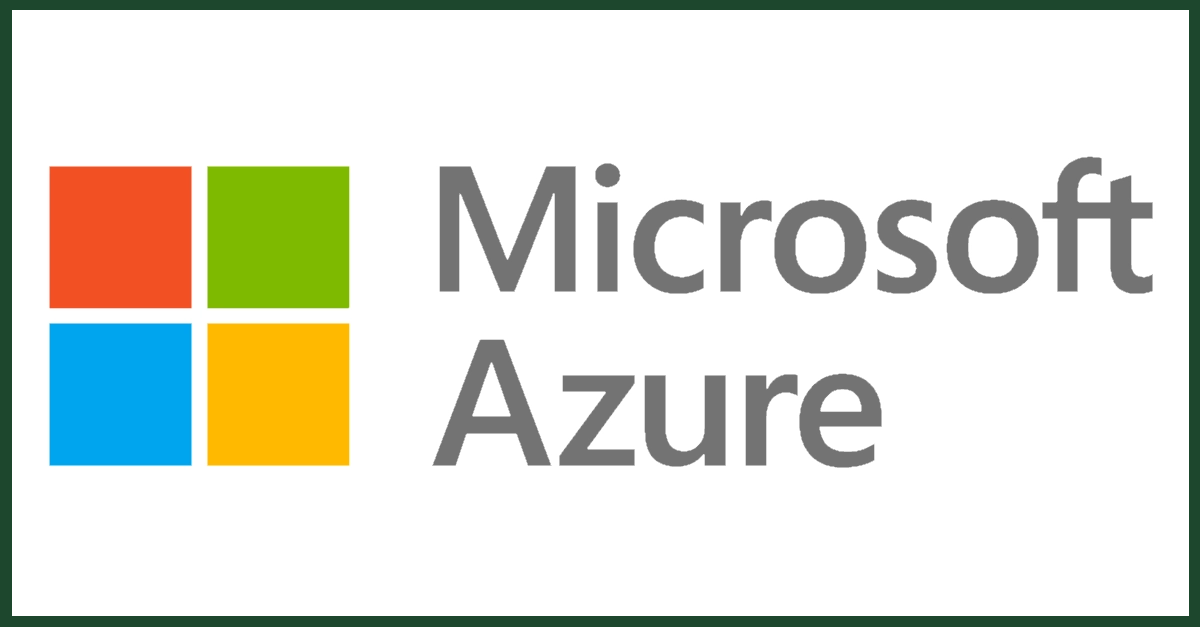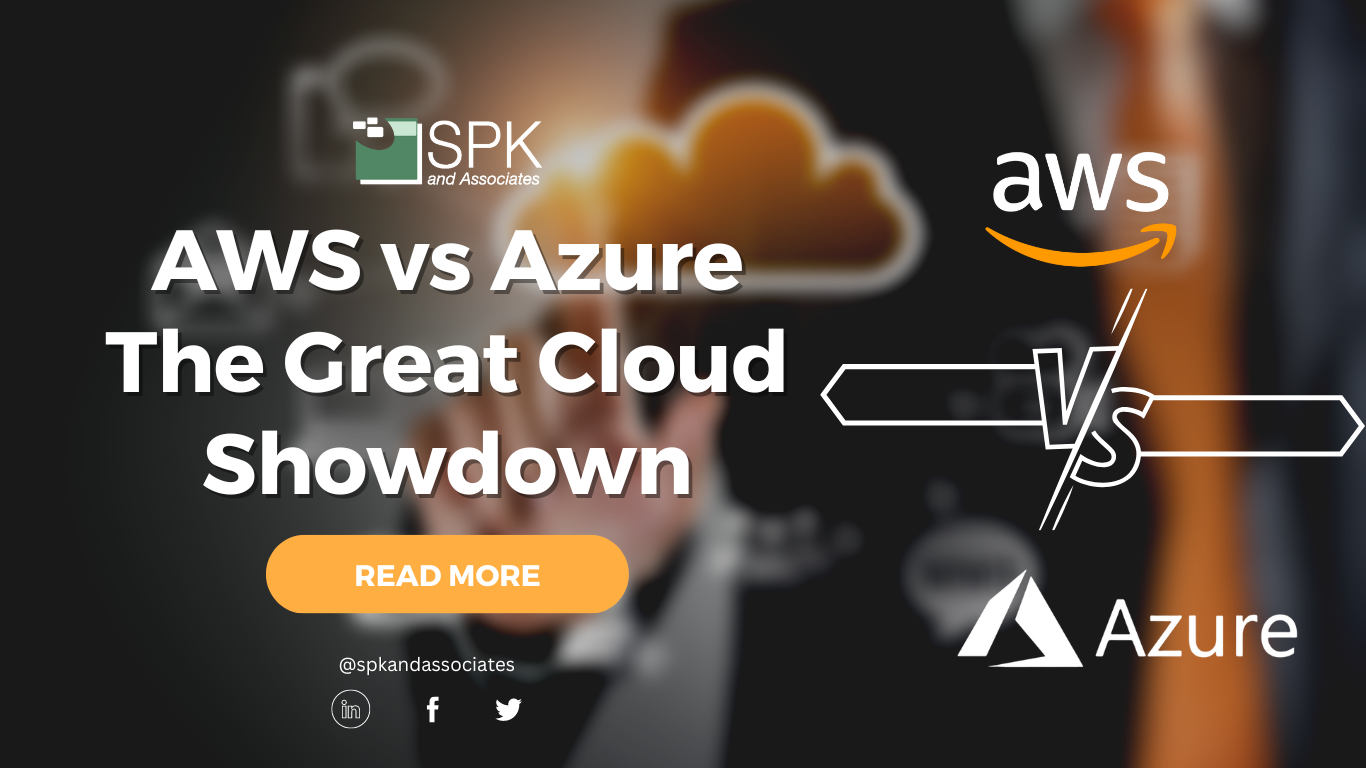Cloud computing has enabled organizations to access more computing resources without investing in physical infrastructure. It’s probably one of the best technological advances to date. And with its growth comes an option for cloud providers. Two of the most popular cloud service providers are Amazon Web Services (AWS) and Azure. So, in this blog post, we’ll compare the two giants, highlighting their unique features, benefits, and drawbacks of AWS vs Azure.
AWS vs Azure – Which Is Better?
A Brief History Of AWS vs Azure
AWS was one of the first cloud providers in the market, launching in 2002. Azure, on the other hand, launched in 2010. So, AWS was an early player in the field but initially lacked enterprise features. Recently, however, it has added them to its services. Meanwhile, Microsoft Azure has a strong ability to cater to enterprise clients with its support for quick upscaling and downscaling of quality assurance and test environments.


Both have their own unique offerings and provide developers with the flexibility to build and deploy applications. Now let’s deep dive into the details so you can decide who wins in the AWS vs Azure battle for your business.
AWS vs Azure Pricing Models
Firstly, one of the most significant differences between Azure vs AWS is their pricing models. Azure offers a pay-as-you-go pricing model. That means you only pay for the services you use. Comparatively, AWS offers a more complex pricing model with a range of pricing plans. For example on-demand, reserved instances, and spot instances. Additionally, there are a few watch-outs for cloud provider pricing you should be aware of. Check those out here.
Integrating AWS and Azure
AWS offers a range of integration options to help connect and extend existing IT systems, including APIs, SDKs, AWS CloudFormation, AWS CLI, AWS Management Console, and AWS Marketplace. However, Azure’s advantage is its integration with Microsoft technologies, allowing businesses to leverage their existing infrastructure and tools. This makes it easier for companies that have invested in Microsoft technologies to move their operations to the cloud.
Infrastructure and Coverage
Another significant difference between the two cloud service providers is their infrastructure. AWS has a more extensive global infrastructure footprint than Azure, with 87 Availability Zones within 27 geographic regions around the world. And, Azure, has 60 regions worldwide..
AWS vs Azure Reliability
When it comes to AWS vs Azure, both are highly dependable, with minimal system outages. However, AWS is considered the most secure, extensive, and reliable global cloud infrastructure. It has plenty of security features, including DDoS protection, encryption, and firewall protection. Azure also offers a range of security services, including Azure Active Directory and Azure Security Center.
Cloud Services
With cloud service options, AWS users can access over 200 of them. For example EC2, Amazon S3, and DynamoDB. Azure, on the other hand, offers a range of services, including Azure SQL Database, Azure Virtual Machines, and Azure Functions. Both platforms offer a range of computing, storage, and networking services, making them ideal for businesses of all sizes.
Azure vs AWS Flexibility
Both AWS and Azure offer businesses the flexibility to build, deploy, and manage their applications. However, AWS has a more straightforward setup process, making it easier for developers to use.
Azure offers businesses the ability to leverage their existing Microsoft technologies infrastructure and tools.
Computation Power
AWS’ principal computing solution is its EC2 instances. On the other hand, Azure’s compute services are built on virtual machines (VMs) and include other tools like Cloud Services and Resource Manager.
AWS vs Azure Storage
Both Azure and AWS have great storage options. They both include all the basic features such as REST API access and server-side data encryption. Azure’s storage mechanism is referred to as Blob storage, and AWS’ is called Simple Storage Service (S3).
Additionally, Azure offers two different types of storage: Hot and Cool. Cool storage is less expensive than its counterpart. However, it comes with additional read and write expenses.
Databases
Azure and AWS both provide database services. And it’s regardless of whether you need a relational database or a NoSQL offering. Amazon’s RDS (Relational Database Service) and Microsoft’s equivalent SQL Server database both are highly available, durable and provide automatic replication.
Content Delivery and Networking Connectivity
AWS and Azure offer firewall choices and solutions for extending on-premise data centers into the cloud. Users can build separate networks inside the cloud using AWS’ Virtual Private Cloud (VPC) and Azure allows users to create private networks using Virtual Network (VNET).
AWS vs Azure Machine Learning
Next up, is the hot topic of Machine Learning. Azure and AWS have their own unique approaches to providing machine learning as a service. With SageMaker, AWS offers a comprehensive end-to-end machine learning pipeline for models including:
- Building.
- Training.
- Deploying.
Comparatively, Azure’s Machine Learning Studio boasts a user-friendly interface with a drag-and-drop canvas. That means it’s easy to create models without extensive coding knowledge of languages like Python.
Essentially, when it comes to AWS vs Azure for machine learning:
- AWS is better for those who want complete control and flexibility over their code.
- Azure appeals to those who want a more intuitive experience.
How To Choose Between AWS vs Azure Cloud Services
Ultimately choosing between AWS vs Microsoft Azure depends on the specific needs of a business. Both cloud providers offer various services, benefits, and drawbacks. Azure’s advantage is its integration with Microsoft technologies. However, AWS has a broader global infrastructure footprint than Azure, making it ideal for businesses that require extensive reach. Additionally, while AWS offers more flexibility and control over code, Azure is more user-friendly. That means it easily enables non-technical users to create machine learning models. Finally, you’ll need to evaluate your business requirements, objectives, and resources before selecting a cloud provider to best suit.
If you’re planning your cloud migration, check out our proven cloud migration strategy you can reuse here.
Need Cloud Support?
Need support to choose which cloud provider will work best for your business needs and infrastructure? Or, need support to migrate to the cloud? Our expert cloud services team can help. We support SMEs and enterprises globally to modernize their legacy systems. Contact our team here for a no-obligation discussion.







